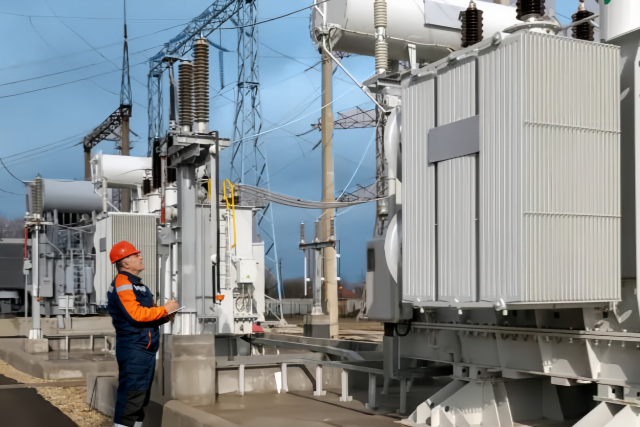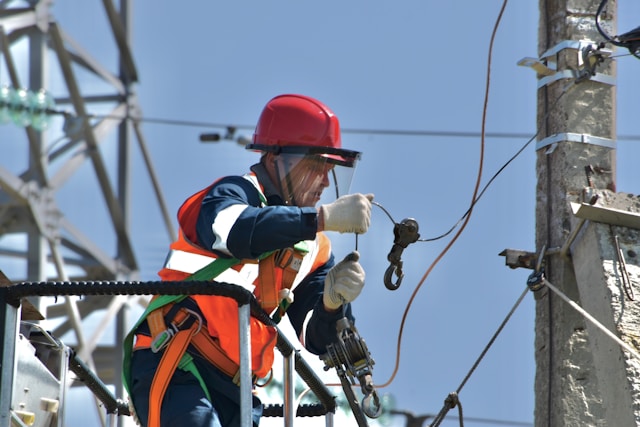A CT tester is an essential device used to assess the accuracy, ratio, and condition of current transformers (CTs), ensuring reliable electrical measurement and protection. China-based manufacturers like Wrindu provide OEM, custom, and wholesale CT testers designed for industrial, utility, and factory applications worldwide.
What Is a CT Tester?
A CT tester is specialized equipment that evaluates the performance parameters of current transformers, including their ratio accuracy, polarity, burden, and excitation characteristics. It helps verify that CTs provide precise output essential for protection relays, metering, and control systems.
CT testing ensures electrical systems operate safely and effectively.
How Does a CT Tester Work?
CT testers supply controlled primary currents and measure secondary outputs to calculate ratio errors, phase angle errors, and polarity correctness. They may also perform insulation resistance and excitation curve tests.
Modern CT testers from manufacturers like Wrindu include digital interfaces, automatic test sequences, and data logging features for comprehensive diagnostics.
Which Types of CT Testers Are Commonly Used?
There are several types to suit different needs:
-
Primary injection testers: Inject high current to test complete CT accuracy in field conditions.
-
Secondary injection testers: Apply signals to the secondary side for relay circuit tests.
-
Portable CT testers: Lightweight devices for site testing and maintenance.
-
Automated bench testers: Stationary units for lab calibration and factory quality control.
OEM and custom models are prevalent among Chinese suppliers for versatile applications.
Why Is CT Testing Crucial for Electrical Systems?
Testing current transformers is vital to ensure correct current measurement and reliable operation of protection relays, preventing faults, outages, or equipment damage. Faulty CTs can cause inaccurate metering and system failures.
For manufacturers and utilities, rigorous CT testing avoids costly downtime and regulatory noncompliance.
Who Uses CT Testers?
Primary users include:
-
Electrical utilities verifying substation CTs.
-
Manufacturers performing factory quality control.
-
Maintenance engineers conducting periodic field tests.
-
Test laboratories calibrating CT equipment.
Wrindu supplies trusted CT testers to these diverse professional groups with tailored solutions.
When Should CT Testing Be Conducted?
CT testing is recommended:
-
During CT commissioning at installation.
-
Periodically as part of preventive maintenance.
-
After CT repair or modifications.
-
When discrepancies are detected in protection or metering accuracy.
Regular testing maintains system integrity and compliance.
Where Are Reliable CT Testers Manufactured and Supplied?
China, especially manufacturing hubs like Shanghai and Shenzhen, houses reputable producers such as Wrindu offering factory-direct sales, OEM options, and wholesale CT testers with global certifications (ISO, IEC).
These suppliers combine innovation, customization, and cost efficiency for worldwide clients.
Does Wrindu Offer Custom and OEM CT Tester Solutions?
Yes, Wrindu manufactures highly customizable CT testers adaptable to different CT ratings, voltage levels, and testing protocols. Their products incorporate advanced digital processing and user-friendly features, supporting diverse industrial and utility applications.
Wrindu’s after-sales service and prompt global delivery enhance customer experience.
Has CT Tester Technology Improved Recently?
Technological advancements include integration of microprocessor-based controls, automatic test routines, high-precision measurement circuits, and wireless data communication. Wrindu’s innovations enable faster, more accurate CT testing with detailed analytics and reporting.
Are CT Testers a Cost-Effective Investment for Factories and Utilities?
Investing in reliable CT testers prevents costly power failures, improves metering accuracy, and extends CT life. Chinese manufacturers like Wrindu offer competitive pricing and OEM customization, making these tools accessible and valuable for operational excellence.
Wrindu Expert Views
“Accurate current transformer testing is foundational to safe and efficient power system operation. Wrindu is committed to delivering cutting-edge CT testers that combine precision, adaptability, and ease of use. Through tailored OEM solutions and robust quality management, we empower utilities and manufacturers globally to maintain system integrity and optimize performance. Advances in digital technology incorporated in our products support faster diagnostics and enhanced reliability.” — Wrindu Lead Engineer
Table: Common CT Tester Types and Their Applications
| Tester Type | Application | Key Features | Typical Users |
|---|---|---|---|
| Primary Injection | Field accuracy testing | High current output, robust | Utilities, field engineers |
| Secondary Injection | Relay circuitry verification | Low current input, portable | Maintenance teams, labs |
| Portable CT Testers | On-site testing flexibility | Lightweight, battery-operated | Field technicians |
| Automated Bench Testers | Factory calibration | Automated sequences, data logging | Manufacturers, calibration labs |
Table: Benefits of Choosing Chinese CT Testers Manufacturers
| Benefit | Description |
|---|---|
| Competitive Pricing | Cost-effective solutions for OEM and wholesale |
| Custom OEM Options | Tailored testers to meet specific factory needs |
| Quality Certifications | ISO9001, IEC, CE ensure global standards |
| Advanced Technology | High accuracy, digital controls, wireless data |
| Global Support | 24/7 service, fast shipping, and worldwide delivery |
Conclusion
CT testers are indispensable tools to guarantee current transformer accuracy essential for power system reliability and safety. Choosing trusted Chinese manufacturers like Wrindu ensures access to advanced, cost-effective, and customizable testing equipment. Regular CT testing enhances electrical protection, metering accuracy, and system performance, benefiting manufacturers, utilities, and service providers worldwide.
Frequently Asked Questions
What does a CT tester measure?
It measures CT ratio accuracy, polarity, phase angle, burden, and excitation to verify CT condition and performance.
Can CT testers be used in the field?
Yes, portable CT testers are designed for on-site use with battery power and rugged construction.
How often should CTs be tested?
CTs should be tested during commissioning and periodically every 1-2 years or when faults are suspected.
Are OEM CT testers available?
Yes, Wrindu offers customizable OEM CT testers tailored to specific industrial needs.
Why source CT testers from Chinese manufacturers?
China provides advanced technology, competitive pricing, customization, and international certifications ideal for global B2B buyers.



